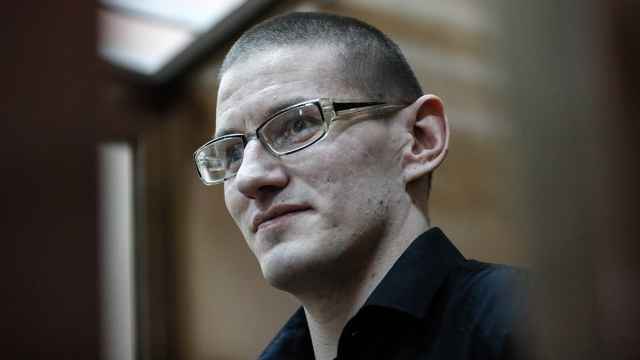LEWISBURG, Tennessee — A woman who ended her adoption of a 7-year-old Russian boy by putting him on a plane to Moscow by himself lost her bid to keep from paying $150,000 in child support.
Torry Hansen made her first court appearance Friday in a case that began in April 2010, when she sent Artyom Saveliyev away from her home with a letter that said he had violent behavior problems and that she no longer wanted to be his mother.
Criminal charges were never filed, but the Seattle-based adoption agency she used, the World Association for Children and Parents, sued her last year for child support.
Hansen, who now lives in California, went through a string of lawyers as she contested the child support, and she never responded to summonses to appear in court or at depositions.
In May, after Circuit Court Judge Lee Russell ordered her to pay $150,000 in child support, she hired a new attorney, former federal prosecutor Edward Yarbrough, of Nashville.
In court Friday, Hansen told the judge her previous attorneys did not keep her informed about the case and advised her that she did not need to come to court.
She also said she gave birth to a daughter last year and could not come to court because of the pregnancy.
Hansen never spoke to the media before Friday, but her mother, Nancy Hansen, told a reporter in 2010 that her daughter, then 33, had to return the boy when he developed serious behavior problems.
Nancy Hansen said he hit, screamed and spit at his adoptive mother and threatened to burn down the Hansen home and kill members of the family.
"Without going into depth, I can say he was very violent. I can say he wanted to kill me, and he tried to kill my sister," Torry Hansen said in court Friday.
She said the boy threatened to stab her mother to death. She started to tear up when describing how the threats of violence sent her mother to the emergency room in Shelbyville, Tennessee.
"That was when my parents decided to take him, because he was so violent," she said.
She said it was her parents' decision to put the boy on a flight to Russia, but she was aware of the decision and acquiesced.
"I have never mistreated or abused him or any child," she said.
Under cross-examination, Torry Hansen told the court she never called police or the state Department of Children's Services about the boy's behavior.
"I called numerous psychologists and was told there would be a six-week wait to get in," she said.
When asked whether she was aware that a Russian court had found that her actions constituted neglect and abuse, she said, "I am aware that they felt putting him on the plane was emotionally disturbing."
Ruling from the bench, Russell upheld his default judgment against Hansen, ordering her to pay child support for Artyom, who now lives in a group home outside Moscow.
Russell said Hansen had not cooperated with the court and he wasn't convinced by her arguments.
Yarbrough said Hansen has been making the child-support payments and will be required to continue doing so.
The case contributed to a decision by Russia in 2010 to delay some adoptions by U.S. parents. The State Duma last week ratified a new agreement with the United States that gives the country greater power to regulate international adoptions.
After the judge's ruling, Yarbrough said the litigation is not over and his client still has options, such as appealing the order or requesting that it be modified.
"I think it is a loss. We wanted the judge to set aside the default judgment and have a full trial, but there are other options for us," he said.
The attorney for the adoption agency, Larry Crain, said the child spent six weeks in a psychiatric hospital when he was returned to Russia because of the trauma he experienced.
He noted that the case has had huge implications on international child adoptions and sparked outrage in both countries.
"I believe even the accord last week was due to the fact that ... when no one else would step up and do anything for this child, finally this court did, " he said. "Now we believe there are safeguards in place to prevent this from ever happening again."
A Message from The Moscow Times:
Dear readers,
We are facing unprecedented challenges. Russia's Prosecutor General's Office has designated The Moscow Times as an "undesirable" organization, criminalizing our work and putting our staff at risk of prosecution. This follows our earlier unjust labeling as a "foreign agent."
These actions are direct attempts to silence independent journalism in Russia. The authorities claim our work "discredits the decisions of the Russian leadership." We see things differently: we strive to provide accurate, unbiased reporting on Russia.
We, the journalists of The Moscow Times, refuse to be silenced. But to continue our work, we need your help.
Your support, no matter how small, makes a world of difference. If you can, please support us monthly starting from just $2. It's quick to set up, and every contribution makes a significant impact.
By supporting The Moscow Times, you're defending open, independent journalism in the face of repression. Thank you for standing with us.
Remind me later.






